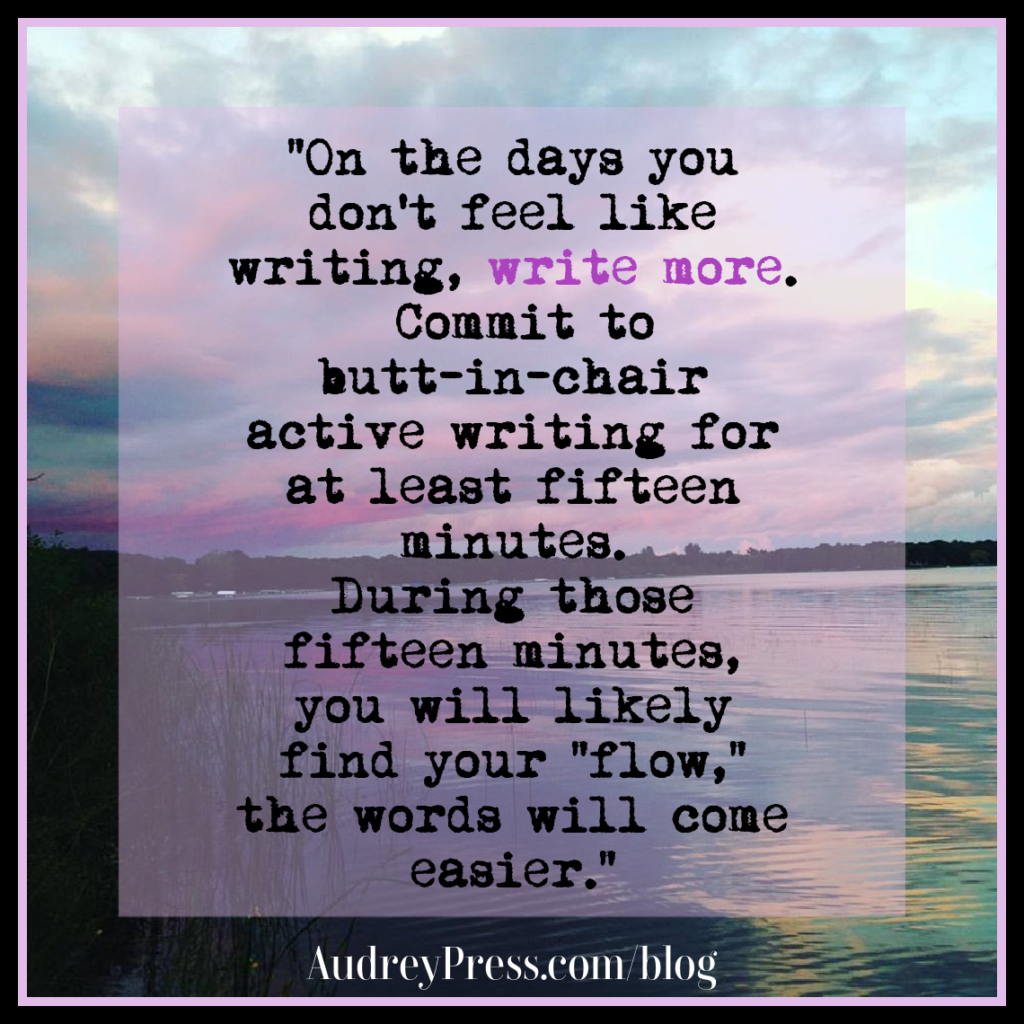“Writing is not just for acclaimed authors. After all, they had to start somewhere too, and even though it may seem hard to believe, every famous writer started the first chapter of their first book with just one word. I Love to Write day was founded by author John Riddle, a non-fiction and self-help writer, to get kids writing in schools and encourage adults to rekindle an old dream.” The official I Love To Write Day website.
Observed traditionally on November 15th, this day is near and dear to my heart. As a long-time writer and author of several books, I know firsthand that writing can be releasing and invigorating or feel like pure torture! A wise veteran author told me this nugget of gold years ago, and I find it to be still true.
“On the days you don’t feel like writing, write more. Commit to butt-in-chair active writing for at least fifteen minutes. During those fifteen minutes, you will likely find your “flow,” the words will come easier.”

Here are a few more tips to help with your writing journey:
Storytelling is Crucial
When writing for children’s books, keep in mind kids like to be drawn into a story. They want to be enchanted, delighted, and entertained.
Don’t be too simplistic. Instead of saying “He lived all alone, finding food in alleyways and sleeping in peoples’ gardens.
Say: As he endured a solitary life, he amused himself scrounging for food in dented trash cans or finding a warm bush to nap under that felt just right.
Deepen your story and paint a picture with words. Creating children’s books is not just about writing proper and correct content, it is about superb storytelling. Even if you are an adult reading a children’s book, you too should be enchanted and captivated by the story. Authors like Roald Dahl appeal to both kids and adults-that is a mark of good storytelling.
Stop Beating Yourself Up When You Make a Mistake:
You don’t have to. We are all human beings who make mistakes and miss the mark sometimes. The big question is: how will you grow from that mistake? What could you have done differently? What did you learn from it? Work through it, and move on to the next project. If you find yourself still reliving and rehashing blunders from years ago…STOP IT. That is just your anxiety talking. You are a smart, strong, and perfectly capable writer. OWN IT.
Inspiration Makes for Great Books:
What have you witnessed, read, watched, or listened to lately inspired you to try something new or be a better person? What about this inspiration will fuel your writing aspirations? Oftentimes, we can be our inspiration, and we work through the process of sharing our story. Do you have experience overcoming addiction, travel, adoption, gold mining, flipping real estate, or a life-long illness? These ideas, thoughts, and questions will help ramp up your writing habits and quality.
Focus:
During the creative process, authors should not be looking to others for approval on their works. Authors need to buckle down, puke on a page and churn out some crappy stuff to get the momentum they need. That is NOT the time to ask those around you, “what do think?” or “do you like it so far.” Be selfish and protective of your creative process, the sharing will come later.
Feel the Fear and Do It Anyway
Don’t be a “someday author,” as in “someday I will write a book.” Take action, but pen to paper or fingers to keyboard and WRITE. Once your words land on paper, your book publishing dreams become more real. One word, one sentence, one page at a time.

Be Clear on Your End Game
Ask yourself what steps you need to take to make your book come to life (completely OK to work backward from the finished and published product to discover the journey and what your needs are). Are you writing for fun? For healing? To share your story? To make money? Be clear your “why.”
Helper Tools are Your BFF
Utilize tools like Schrivner to orchestrate the flow of your story. Even putting an outline on standard index cards is a useful and easy way to shift and move the parts of your story outline around. Grammarly is another amazing online tool that will help with grammar, punctuation, and sentence structure.
REMEMBER, a book is not written in a day. There is no magic pill or formula that lets your completely polished and final product evolve in 24 hours. There is also no right or wrong way to create your literary works. Books are not typically “divinely inspired,” they are simply worked out.
